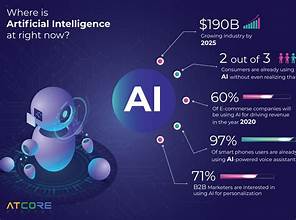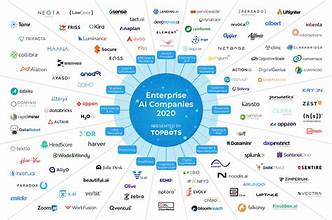
Artificial Intelligence (AI) is revolutionizing various sectors, and academia is no exception. The integration of AI into academic research is reshaping methodologies, enhancing productivity, and opening new avenues for exploration. This article explores the current trends in AI’s impact on academic research and looks ahead to future directions.
Current Trends in AI and Academic Research
- Enhanced Data Analysis
One of the most significant impacts of AI on academic research is its ability to handle and analyze vast amounts of data. Traditional methods of data analysis are often limited by human capacity to process and interpret large datasets. AI technologies, particularly machine learning algorithms, can analyze complex data patterns quickly and with high accuracy. This capability allows researchers to uncover insights that would be challenging to identify using conventional techniques.
- Improved Research Efficiency
AI tools are streamlining various aspects of the research process, from literature review to data collection and analysis. For instance, natural language processing (NLP) algorithms can sift through massive volumes of academic papers to identify relevant studies, thus reducing the time researchers spend on literature reviews. Additionally, AI-powered data collection tools can automate the gathering of research data, minimizing manual effort and potential errors.
- Predictive Modeling and Simulations
Predictive modeling and simulations are crucial for understanding complex systems and phenomena. AI algorithms excel in creating accurate models and simulations, which can predict outcomes and test hypotheses with high precision. This ability is particularly valuable in fields such as climate science, economics, and biology, where accurate predictions can drive more effective research strategies and policy decisions.
- Enhanced Collaboration and Networking
AI is also facilitating better collaboration and networking among researchers. Platforms powered by AI can recommend potential collaborators based on research interests and past publications. This fosters interdisciplinary research and helps scholars connect with others working on similar problems. AI-driven networking tools are making it easier for researchers to find and engage with experts worldwide.
- Automated Peer Review and Publishing
The peer review process is critical for maintaining the quality and credibility of academic research. AI tools are increasingly being used to assist in peer review by automatically screening manuscripts for quality and relevance. These tools can identify potential issues, such as plagiarism or methodological flaws, before a manuscript is sent to human reviewers. This automation speeds up the review process and helps ensure that only high-quality research is published.
Future Directions
- Ethical Considerations and Bias Mitigation
As AI becomes more integrated into academic research, addressing ethical considerations and bias is crucial. AI algorithms can inadvertently perpetuate biases present in training data, leading to skewed research outcomes. Future developments in AI should focus on creating transparent and fair algorithms that minimize bias. Researchers will need to develop frameworks for ethical AI use in research to ensure integrity and fairness.
- AI-Driven Research Proposals
The future may see AI playing a role in generating research proposals. AI algorithms could analyze existing literature and identify gaps in knowledge, suggesting novel research questions and approaches. This capability could help researchers formulate more innovative and impactful research proposals, accelerating scientific discovery and advancement.
- Interdisciplinary Research Innovations
AI has the potential to drive interdisciplinary research innovations by connecting insights across different fields. Future AI tools may enable researchers from diverse disciplines to collaborate more effectively, leading to breakthroughs that combine expertise from various domains. This cross-disciplinary approach could lead to new discoveries and applications that address complex global challenges.
- AI in Education and Training
The integration of AI into academic research also extends to education and training. AI-powered educational tools can provide personalized learning experiences for students and researchers, helping them acquire new skills and knowledge more efficiently. These tools can adapt to individual learning styles and pace, enhancing the overall quality of education and research training.
- Continual Advancements in AI Technology
As AI technology continues to advance, its applications in academic research will likely expand. Researchers will need to stay abreast of the latest developments in AI to leverage new tools and techniques effectively. Continuous advancements in AI will drive further innovation in research methodologies and enhance the capabilities of researchers across various fields.
Conclusion
AI is profoundly impacting academic research by enhancing data analysis, improving efficiency, and fostering collaboration. As AI technology continues to evolve, its role in academic research will expand, driving innovation and opening new possibilities. However, addressing ethical considerations and biases, and exploring future directions, will be essential for maximizing the benefits of AI in academia. Embracing these changes will enable researchers to harness the full potential of AI and contribute to the advancement of knowledge across disciplines.













